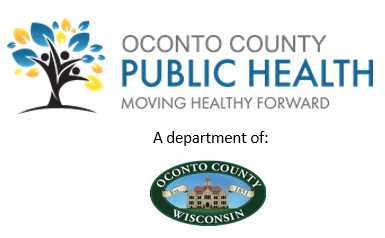DHS Encourages Pregnant Wisconsinites To Get RSV Vaccine
Vaccine can protect babies from serious illness
With cases of Respiratory Syncytial Virus (RSV) rising across Wisconsin, the Department of Health Services (DHS) is urging pregnant Wisconsinites to get the vaccine to protect their baby from the virus. As of January 10 there have been 1,402 people in Wisconsin hospitalized with RSV this season, 580 of those are children under age 2.
The RSV vaccine Abrysvo can be given to people who are pregnant between 32 weeks and 36 weeks and 6 days of pregnancy and provides protection for newborns until they are 6 months old. The vaccine was approved for use in 2023 and is safe and effective. People who are pregnant should ask their health care provider if they can get the vaccine.
“This RSV vaccine provides protection to the infant for the first six months after they are born,” said DHS Respiratory Disease Epidemiologist Tom Haupt. “That provides the baby protection at a time when they could be vulnerable to serious illness.”
A different option to protect infants is a monoclonal antibody shot (nirsevimab). Children under 8 months of age can receive nirsevimab, but it is important to know that nirsevimab is currently in limited supply. This is why it is especially important for people who are pregnant to get the RSV vaccine, which is readily available, to ensure their infants are protected.
The RSV vaccine is also available to all adults aged 60 and older. There are two RSV vaccines available for this age group: Arexvy and Abrysvo. Both vaccines are safe and effective.
Aging and older adults, individuals who are pregnant, and new parents should contact their health care provider to determine if RSV vaccination or preventive treatment is recommended for them or their infant.
In addition to the RSV vaccine, DHS urges everyone 6 months and older to get the flu vaccine and updated COVID-19 vaccine. This is especially important for people who are at greater risk of becoming seriously ill, this includes those who are pregnant, age 65 and older, and those with chronic health conditions. Wisconsinites can find locations offering the flu and COVID-19 vaccine by visiting vaccines.gov or calling 211 or 877-947-2211.
Besides vaccines, there are steps we can all take to help stop the spread of germs and viruses:
- Wash your hands often with soap and water for 20 seconds.
- Avoid touching your nose, eyes, and mouth.
- Stay home and away from others if you feel sick.
- Avoid being around others who are sick or have respiratory illness symptoms.
- Cover your nose and mouth when you cough or sneeze and encourage children to do the same.
- Wear a high-quality mask around others to prevent the spread of respiratory illnesses.
Up-to-date information about the current respiratory virus season can be found in the DHS Weekly Respiratory Report.
